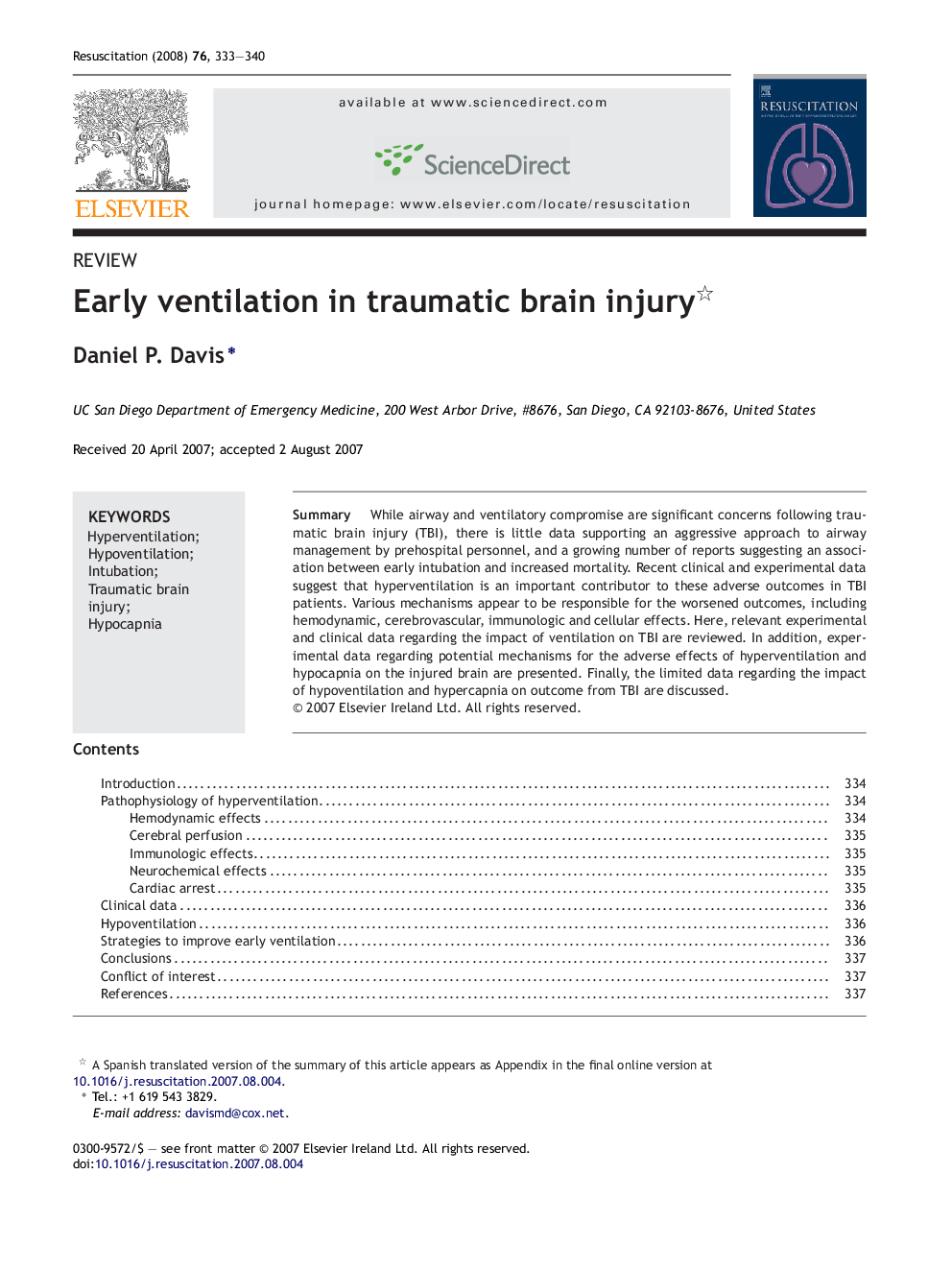| Article ID | Journal | Published Year | Pages | File Type |
|---|---|---|---|---|
| 3010585 | Resuscitation | 2008 | 8 Pages |
SummaryWhile airway and ventilatory compromise are significant concerns following traumatic brain injury (TBI), there is little data supporting an aggressive approach to airway management by prehospital personnel, and a growing number of reports suggesting an association between early intubation and increased mortality. Recent clinical and experimental data suggest that hyperventilation is an important contributor to these adverse outcomes in TBI patients. Various mechanisms appear to be responsible for the worsened outcomes, including hemodynamic, cerebrovascular, immunologic and cellular effects. Here, relevant experimental and clinical data regarding the impact of ventilation on TBI are reviewed. In addition, experimental data regarding potential mechanisms for the adverse effects of hyperventilation and hypocapnia on the injured brain are presented. Finally, the limited data regarding the impact of hypoventilation and hypercapnia on outcome from TBI are discussed.
